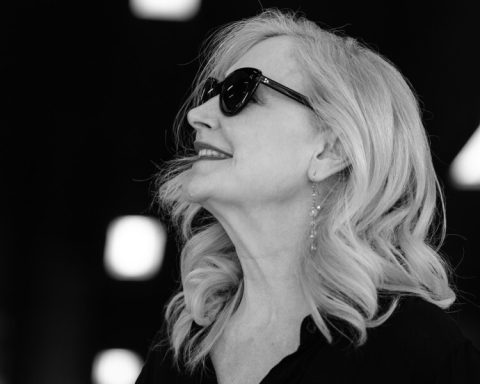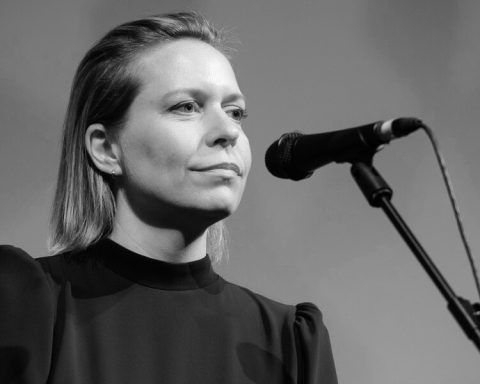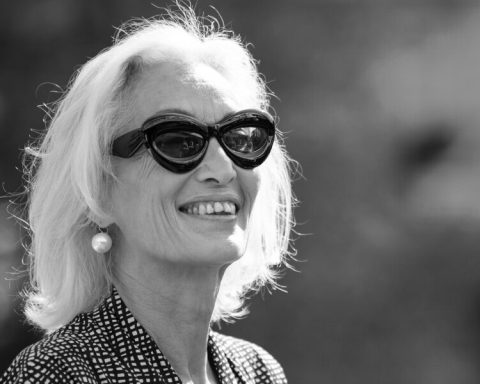In her directorial debut, The Girls Are Alright, Spanish thespian Itsaso Arana, known to audiences thanks to Jonás Trueba’s August Virgin that she also co-wrote, navigates once again between cinema and theater and follows four actresses and a writer who are rehearsing for a stage play in an old mill. The film played in Competition at this year’s Karlovy Vary International Film Festival.
The first time Arana felt she should make this particular film was after a very deep personal experience. She was born into a family that is made up of many women and when her father was on his deathbed, they spent a week in her hometown, around his bed, waiting for him to die, an experience that Arana characterizes as very deep and transformative. When he eventually passed away, she understood the importance of being alive, “I think that it’s a very reverberating image and it’s so powerful when someone that you really love is gone. I think that that was not a sad moment for me. It was a moment that made me want to be more alive, like something that gave me lightness. It’s a mysterious thing,” she shares.
She adds: “I was around his bed with all the girls, my sisters and my mom. I really thought about the Victorian tales and all these stories about a lot of women in the same space, a little bit desperate – because it was a desperate situation. And I linked these two situations – this transformative moment and this kind of inspiration – to another layer of something that was aesthetic and literary.”
Arana combines fiction and documentary in The Girls are Alright and adds comedy to the mix, blurring the lines between fantasy and reality, between the past, the present and the future, “I think that the film is a lot of things mixed together. It’s half documentary, half fiction. It’s a modern film, but maybe if you stop it in one frame, you can think that it’s both a film and a play. And, at the same time, it’s really realistic. Like a fairytale but, at the same, a very real commitment between the girls. I think that the most difficult thing about doing the film was to find the sweet spot with the tone, between the lightness and the depth. So, these two forces were working together all the time,” she observes.
Before shooting, everything was scripted. The screenplay was written after Arana had a conversation with each of the protagonists about the film’s various and varied topics, “Then, I made some adjustments because sometimes it was too personal for them,” she says. “It’s not easy at all to have a character that shares your name and your story. So, they were really, really generous with the film, with my sharing this. But I think that the secret of this was that we were friends, and they knew that I was going to be maternal and kind with this material because, for me, it was like a sacred source.”
Arana has worked with or known all four actresses – Bárbara Lennie, Irene Escolar, Helena Ezquerro and Itziar Manero – in the past, so the situation was “slightly difficult” as each of them was sharing their own vulnerabilities, “I had to be tender and very lovely with them because I knew what it means to act and to give yourself in that way to a project and I knew that I had to practice a feminine kind of leadership,” she says of the film’s shoot.
Speaking of feminine leadership, Arana is indeed a feminist, “For sure, the film is totally feminist. It isn’t just a title. It’s not just a manifest. It’s not just an idea. It was a really deep process about transforming my own relationships with the women in my life and the other actresses. I think our work is a very violent environment for women and it’s so difficult to be human with each other,” she declares.
She adds: “At the beginning, I was so scared because I don’t think that it’s easy to portray feminism, so it was difficult to hit the right tone and not be like ‘I have an idea and I want to be a modern feminist in a general way’ because I wanted to share my own feminist experience, one that I am going through with the friendship and companionship of women.”
Arana thinks the situation of women in film in Spain today is improving, “It would maybe be better if we didn’t have to question this at all, but we have a lot of work to do in Spain, for sure. The government has taken it as a political issue. There is no other option right now. We have to do political gestures to change the industry, to change how we share the money, to change the heads of department… So, in Spain, there has been great change, but we have a lot of work to do,” she opines.
Presently, Arana is writing a script with Jonás Trueba that is going to be shot this Fall, “I am just going to write it and act in it, like in August Virgin. And then, I have a project with my theater company. I haven’t been back in the theater in a long time. And I think that we are going to write and direct collectively,” she concludes.
Photo credits: KVIFF.
This interview was conducted at the 2023 Karlovy Vary International Film Festival.










